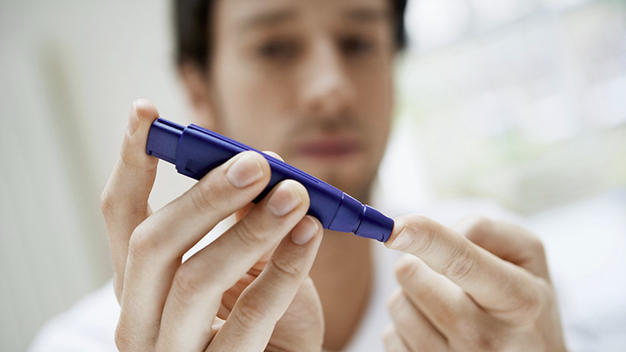There are two types of diabetes. In the first, the body produces inadequate amounts of insulin, and in the second, body cells cannot use insulin properly. Results of both conditions are elevated blood sugar levels. Diabetes affects many body organs, including the heart, the kidneys and the eyes; and systems and processes such as the nervous system, digestion and metabolism. The reproductive systems of both men and women are also not spared, which raises the question of how diabetes and infertility are connected.

How Does Diabetes Cause Infertility?
Infertility arising from diabetes is common in both men and women. Normally, once food is digested, the insulin hormone transports the energy-producing sugar (glucose) through the bloodstream to individual cells throughout the body. However, due to the imbalance of insulin among diabetics, other hormones including progesterone and testosterone are also thrown out of balance. This results in further problems including erectile dysfunction, ovarian cysts and infertility.
How Does Diabetes Cause Infertility in Men?
1. Damage to Nerves
Diabetes causes narrowing of blood vessels. The constricted blood flow adversely affects the workings of nerve endings in many parts of the body, including those in the penile region. This can lead to erectile dysfunction and infertility. It can also cause retrograde ejaculation, an ejaculatory dysfunction whereby while semen is produced and the man has orgasm during intercourse, the damaged nerves cause the semen to travel backwards into the urinary bladder instead of outwards. This condition may pose no danger, but with no sperm getting into the woman’s vagina, the affected man is unable to impregnate a woman.
2. Damage to Sperm DNA
A study was carried out with 27 men suffering from type I diabetes, a natural autoimmune disorder, and 29 male infertility patients. None of the patients was known to suffer from both diabetes and infertility. The researchers found that subjects from the two groups had similar sperm count and motility levels. However, the known diabetics produced slightly lower semen volumes, but they were within the WHO classification of healthy-to-acceptable limits.
Further examination of the semen revealed that the sperms of the diabetics had more DNA damage than those of the infertility patients. While not all sperms in the samples from diabetic patients were damaged, serious reproductive system damage was apparent. This could cause infertility. This study may not be conclusive; however, it shows that a diabetic man has a high risk of becoming infertile.
3. Low Testosterone
Studies have shown that 25 percent of men with diabetes type II have hypogonadism (low testosterone levels). This can lead to problems that reduce fertility, including erectile dysfunction, low sperm count and decreased libido.
How Does Diabetes Cause Infertility in Women?
1. Polycystic Ovary Syndrome (PCOS)
PCOS is a condition in which multiple cysts grow on the ovaries. This condition does not affect the health of a woman; however, it can cause reduced fertility. Studies have shown that women with PCOS have hyperandrogenism (abnormally high levels of testosterone). PCOS may lead to infertility by causing oligomenorrhea (irregular periods) or secondary amenorrhea (absence of periods).
This condition may be treated by making lifestyle changes. Medications such as metformin and clomifene are used to improve chances of conception. PCOS occurs mainly in women who are obese and those with diabetes type II. Women with diabetes type I who take high doses of insulin are also likely to get PCOS.
2. Premature Menopause
The reality of a link between diabetes and infertility can hit a woman through premature ovarian failure (premature menopause). When the condition occurs, a woman’s periods stop before the age of 40 years. Studies show that women with diabetes type I have a higher risk of premature menopause. Other autoimmune conditions that may lead to early menopause include hypothyroidism, Hashimoto’s thyroiditis and Addison’s disease. Some studies have also indicated that diabetes type II may also lead to premature ovarian failure.
3. Uterine Cancer (Endometrial Cancer)
Women with diabetes type II and PCOS have a higher risk of uterine cancer. The cancer can cause infertility unless it is diagnosed and treated in the early stages.
4. Cardiovascular and Microvascular Complications
Research has shown that women with diabetes type I and the cardiovascular and microvascular complications have lower fertility rates.
Should Diabetics Try to Conceive?
The information about diabetes and infertility may depress people with diabetes and make them wonder if they should even consider trying to conceive. The thing is if you control and maintain healthy blood sugar levels, you can minimize the risks associated with diabetes, have a healthy conception, and give birth to a bouncing baby of your own. But to achieve these, you need to work with your doctor, or better still, an endocrinologist and an obstetrician. These specialists will help you to manage your blood sugar levels prior to and through your pregnancy.
If you have diabetes and are determined to conceive, incorporate the following tips in your life before you start trying:
- Maintain healthy blood sugar levels.
- Monitor your insulin and hemoglobin levels and ensure that your A1C levels are below 6.5.
- Keep your sugar levels under control for 3 to 6 months to help your body prepare for pregnancy.
- Monitor and maintain an optimum bodyweight fitting your ideal BMI.
- Keep fit by taking part in physical activity for 30 to 60 minutes daily.
- Quit smoking.
- Eat a healthy diet consisting of fish, lean meat, low-fat dairy, fresh vegetables and fruits, whole grain and heart-healthy fats. Avoid junk, sweets, processed carbohydrates, added sugars and high-fat foods.
- Consider taking vitamin supplements, making sure to consult your doctor for advice.
- Get enough sleep daily.
